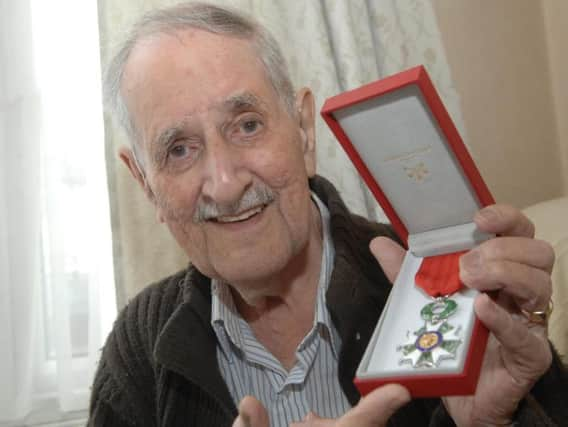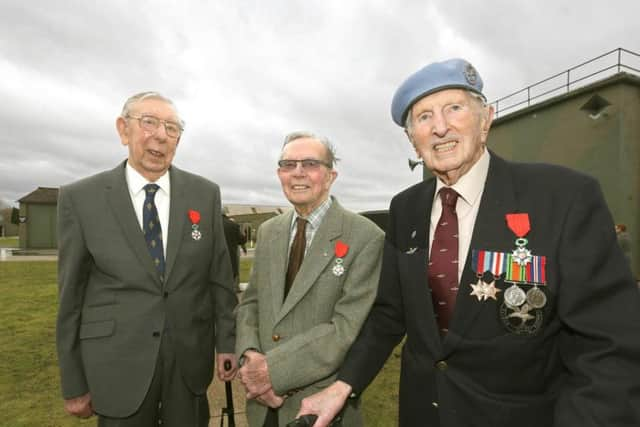Top French honours for Harrogate's D-Day heroes


Now in their 90s, a few remaining veterans from the Harrogate district were among the latest wave of former military personnel to receive the highest order the French government can grant.
It was President François Hollande himself who ordered that anyone who played a role in the liberation of France by sea, land or air should be given the Legion d’Honneur.
Advertisement
Hide AdAdvertisement
Hide AdNearly two years later, the dwindling band of heroes are still receiving the awards almost one at a time.


Two of them were given their medals recently at a ceremony at the Yorkshire Air Museum at Elvington near York attended by senior British military officers, Deputy Lieutenant of North Yorkshire, Brigadier Nigel Wood; the French Consul, the French Defence Attache and the French Air Attache..
The other local veteran received his medal in the post at his Harrogate home after first being notified 18 months ago.
What the Harrogate Advertiser Series has learnt by speaking to three of the heroes in our area to receive the Legion d’Honneur in the last week is that they all went through different experiences on that momentous day when the Allies returned to European soil to begin the task of rolling back the tide of Nazi tryranny.
Advertisement
Hide AdAdvertisement
Hide AdMr Jack Rushton, 92, of Harrogate, Sergeant in the Royal Marines, landed on the sands of Sword Beach, the furthest east of the five beaches targeted for D-Day.


His mission was to get ammunition supplies safely through a barrage of fire.
He lived a charmed life and survived partly through sheer luck, he admits, his wit still firmly intact despite his advancing years.
When I ask him what he did on D-Day, Jack shoots back quick as you like with a single word “ducked.”
Advertisement
Hide AdAdvertisement
Hide AdHe said: We were lucky. We were under fire when we hit the beach but we got across.
“At one point we heard a bang and turned round to see one of our bren gun carriers get blown up by a mine. We’d just walked over the exact same spot."
Mr Hugh Lorimer, 93, of Goldsborough near Knaresborough, a Wing Commander in the RAF, flew mission after mission in a Halifax bomber in the skies over France, wrecking the Germans’ attempts to resupply the German defence line at the beaches of Normandy.
He said: "Our job was very simple - to attack and destroy as much of the enemy as we could in support of the boys on the beaches.
Advertisement
Hide AdAdvertisement
Hide Ad“I think we did a fairly good job. I flew day and night. What I didn’t know at the time was that my late brother, a corporal in the Royal Scots Fusiliers was on the beaches below.
“My goodness. I found out afterwards he got a citation from Field Marshal Montgomery."
Mr Robert J Hall, 93, of Follifoot near Harrogate was a Leading Aircraftman whose job was to talk directly to fighter aircraft so they could outsmart the Luftwaffe as the Allied invasion got under way.
He said: “On D-Day I was in a small unit which was rather specialised. We were in the control unit on this side of the channel 24 hours a day to support RAF fighter planes.
Advertisement
Hide AdAdvertisement
Hide Ad“We were in contact with the pilots by radio. We knew the height and direction of the enemy aircraft.
“We could track them at a distance of 50 to 60 miles away. It was our job to get it right and warn our
boys. The German and British planes would meet up at a closing speed of 700 miles an hour."
These three particular heroes may have made contributed to Allied victory in different ways but all share one thing - great spirit.